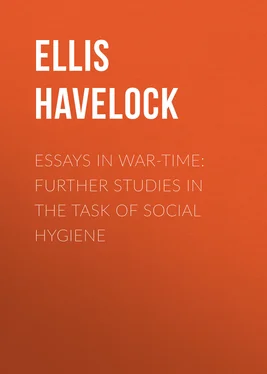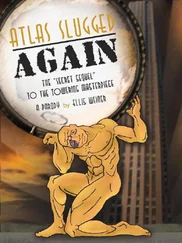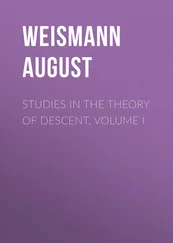Havelock Ellis - Essays in War-Time - Further Studies in the Task of Social Hygiene
Здесь есть возможность читать онлайн «Havelock Ellis - Essays in War-Time - Further Studies in the Task of Social Hygiene» — ознакомительный отрывок электронной книги совершенно бесплатно, а после прочтения отрывка купить полную версию. В некоторых случаях можно слушать аудио, скачать через торрент в формате fb2 и присутствует краткое содержание. Жанр: psy_sex_and_family, foreign_psychology, foreign_edu, на английском языке. Описание произведения, (предисловие) а так же отзывы посетителей доступны на портале библиотеки ЛибКат.
- Название:Essays in War-Time: Further Studies in the Task of Social Hygiene
- Автор:
- Жанр:
- Год:неизвестен
- ISBN:нет данных
- Рейтинг книги:5 / 5. Голосов: 1
-
Избранное:Добавить в избранное
- Отзывы:
-
Ваша оценка:
- 100
- 1
- 2
- 3
- 4
- 5
Essays in War-Time: Further Studies in the Task of Social Hygiene: краткое содержание, описание и аннотация
Предлагаем к чтению аннотацию, описание, краткое содержание или предисловие (зависит от того, что написал сам автор книги «Essays in War-Time: Further Studies in the Task of Social Hygiene»). Если вы не нашли необходимую информацию о книге — напишите в комментариях, мы постараемся отыскать её.
Essays in War-Time: Further Studies in the Task of Social Hygiene — читать онлайн ознакомительный отрывок
Ниже представлен текст книги, разбитый по страницам. Система сохранения места последней прочитанной страницы, позволяет с удобством читать онлайн бесплатно книгу «Essays in War-Time: Further Studies in the Task of Social Hygiene», без необходимости каждый раз заново искать на чём Вы остановились. Поставьте закладку, и сможете в любой момент перейти на страницу, на которой закончили чтение.
Интервал:
Закладка:
It is interesting in the light of these considerations on the eugenic bearings of warfare to turn for a moment to those who proclaim the high moral virtues of war as a national regenerator.
It is chiefly in Germany that, for more than a century past, this doctrine has been preached. 10 10 In France it is almost unknown except as preached by the Syndicalist philosopher, Georges Sorel, who insists, quite in the German manner, on the purifying and invigorating effects of "a great foreign war," although, very unlike the German professors, he holds that "a great extension of proletarian violence" will do just as well as war.
"War invigorates humanity," said Hegel, "as storms preserve the sea from putrescence." "War is an integral part of God's Universe," said Moltke, "developing man's noblest attributes." "The condemnation of war," said Treitschke, "is not only absurd, it is immoral." 11 11 The recent expressions of the same doctrine in Germany are far too numerous to deal with. I may, however, refer to Professor Fritz Wilke's Ist der Krieg sittlich berechtigt? (1915) as being the work of a theologian and Biblical scholar of Vienna who has written a book on the politics of Isaiah and discussed the germs of historical veridity in the history of Abraham. "A world-history without war," he declares, "would be a history of materialism and degeneration"; and again: "The solution is not 'Weapons down!' but 'Weapons up!' With pure hands and calm conscience let us grasp the sword." He dwells, of course, on the supposed purifying and ennobling effects of war and insists that, in spite of its horrors, and when necessary, "War is a divine institution and a work of love." The leaders of the world's peace movement are, thank God! not Germans, but merely English and Americans, and he sums up, with Moltke, that war is a part of the moral order of the world.
These brave sayings scarcely bear calm and searching examination at the best, but, putting aside all loftier appeals to humanity or civilisation, a "national regenerator" which we have good reason to suppose enfeebles and deteriorates the race, cannot plausibly be put before us as a method of ennobling humanity or as a part of God's Universe, only to be condemned on pain of seeing a company of German professors pointing the finger to our appalling "Immorality," on their drill-sergeant's word of command.
At the same time, this glorification of the regenerating powers of war quite overlooks the consideration that the fighting spirit tends to destroy itself, so that the best way to breed good fighters is not to preach war, but to cultivate peace, which is what the Germans have, in actual practice, done for over forty years past. France, the most military, and the most gloriously military, nation of the Napoleonic era, is now the leader in anti-militarism, altogether indifferent to the lure of military glory, though behind no nation in courage or skill. Belgium has not fought for generations, and had only just introduced compulsory military service, yet the Belgians, from their King and their Cardinal-Archbishop downwards, threw themselves into the war with a high spirit scarcely paralleled in the world's history, and Belgian commercial travellers developed a rare military skill and audacity. All the world admires the bravery with which the Germans face death and the elaborate detail with which they organise battle, yet for all their perpetual glorification of war there is no sign that they fight with any more spirit than their enemies. Even if we were to feel ourselves bound to accept war as "an integral part of God's Universe," we need not trouble ourselves to glorify war, for, when once war presents itself as a terrible necessity, even the most peaceable of men are equal to the task.
This consideration brings us to those "moral equivalents of war" which William James was once concerned over, when he advocated, in place of military conscription, "a conscription of the whole youthful population to form for a certain number of years a part of the army enlisted against Nature ." 12 12 William James, Popular Science Monthly , Oct., 1910.
Such a method of formally organising in the cause of civilisation, instead of in the cause of savagery, the old military traditions of hardihood and discipline may well have its value. But the present war has shown us that in no case need we fear that these high qualities will perish in any vitally progressive civilisation. For they are qualities that lie in the heart of humanity itself. They are not created by the drill-sergeant; he merely utilises them for his own, as we may perhaps think, disastrous ends. This present war has shown us that on every hand, even in the unlikeliest places, all the virtues of war have been fostered by the cultivation of the arts and sciences of peace, ready to be transformed to warlike ends by men who never dreamed of war. In France we find many of the most promising young scientists, poets, and novelists cheerfully going forth to meet their death. On the other side, we find a Kreisler, created to be the joy of the world, ready to be trampled to death beneath the hoofs of Cossack horses. The friends of Gordon Mathison, the best student ever turned out from the Medical Faculty of the Melbourne University and a distinguished young physiologist who seemed to be destined to become one of the first physicians of his time, viewed with foreboding his resolve to go to the front, for "Wherever he was he had to be in the game," they said; and a few weeks later he was killed at Gallipoli on the threshold of his career. The qualities that count in peace are the qualities that count in war, and the high-spirited man who throws himself bravely into the dangerous adventures of peace is fully the equal of the hero of the battlefield, and himself prepared to become that hero. 13 13 We still often fall into the fallacy of over-estimating the advantages of military training—with its fine air of set-up manliness and restrained yet vitalised discipline—because we are mostly compelled to compare such training with the lack of training fostered by that tame, dull sedentary routine of which there is far too much in our present phase of civilisation. The remedy lies in stimulating the heroic and strenuous sides of civilisation rather than in letting loose the ravages of war. As Nietzsche long since pointed out ( Human, All-too-Human , section 442), the vaunted national armies of modern times are merely a method of squandering the most highly civilised men, whose delicately organised brains have been slowly produced through long generations; "in our day greater and higher tasks are assigned to men than patria and honor , and the rough old Roman patriotism has become dishonourable, at the best behind the times."
It would seem, therefore, on the whole, that when the eugenist takes a wide survey of this question, he need not qualify his disapproval of war by any regrets over the loss of such virtues as warfare fosters. In every progressive civilisation the moral equivalents of war are already in full play. Peace, as well as war, "develops the noblest attributes of man"; peace, rather than war, preserves the human sea from putrescence; it is the condemnation of peace, rather than the condemnation of war, which is not only absurd but immoral. We are not called upon to choose between the manly virtues of war and the effeminate degeneracy of peace. The Great War of to-day may perhaps help us to realise that the choice placed before us is of another sort. The virtues of daring and endurance will never fail in any vitally progressive community of men, alike in the causes of war and of peace. 14 14 The Border of Scotland and England was in ancient times, it has been said, "a very Paradise for murderers and robbers." The war-like spirit was there very keen and deeds of daring were not too scrupulously effected, for the culprit knew that nothing was easier and safer than to become an outlaw on the other side of the Border. Yet these were the conditions that eventually made the Border one of the great British centres of genius (the Welsh Border was another) and the home of a peculiarly capable and vigorous race.
But on the one hand we find those virtues at work in the service of humanity, creating ever new marvels of science and of art, adding to the store of the precious heirlooms of the race which are a joy to all mankind. On the other hand, we see these same virtues in the service of savagery, extinguishing those marvels, killing their creators, and destroying every precious treasure of mankind within reach. That—it seems to be one of the chief lessons of this war—is the choice placed before us who are to-day called upon to build the world of the future on a firmer foundation than our own world has been set.
Интервал:
Закладка:
Похожие книги на «Essays in War-Time: Further Studies in the Task of Social Hygiene»
Представляем Вашему вниманию похожие книги на «Essays in War-Time: Further Studies in the Task of Social Hygiene» списком для выбора. Мы отобрали схожую по названию и смыслу литературу в надежде предоставить читателям больше вариантов отыскать новые, интересные, ещё непрочитанные произведения.
Обсуждение, отзывы о книге «Essays in War-Time: Further Studies in the Task of Social Hygiene» и просто собственные мнения читателей. Оставьте ваши комментарии, напишите, что Вы думаете о произведении, его смысле или главных героях. Укажите что конкретно понравилось, а что нет, и почему Вы так считаете.












